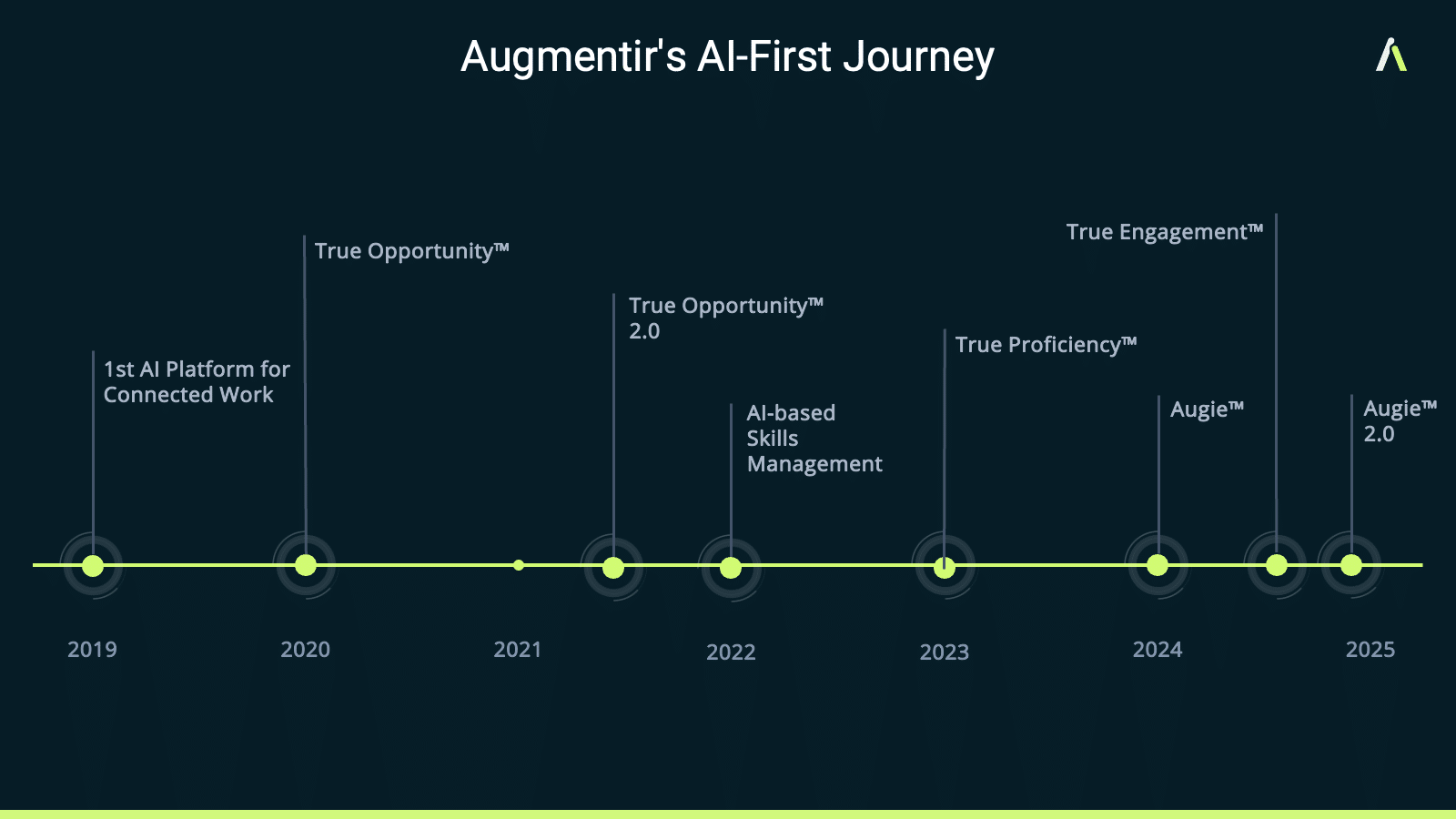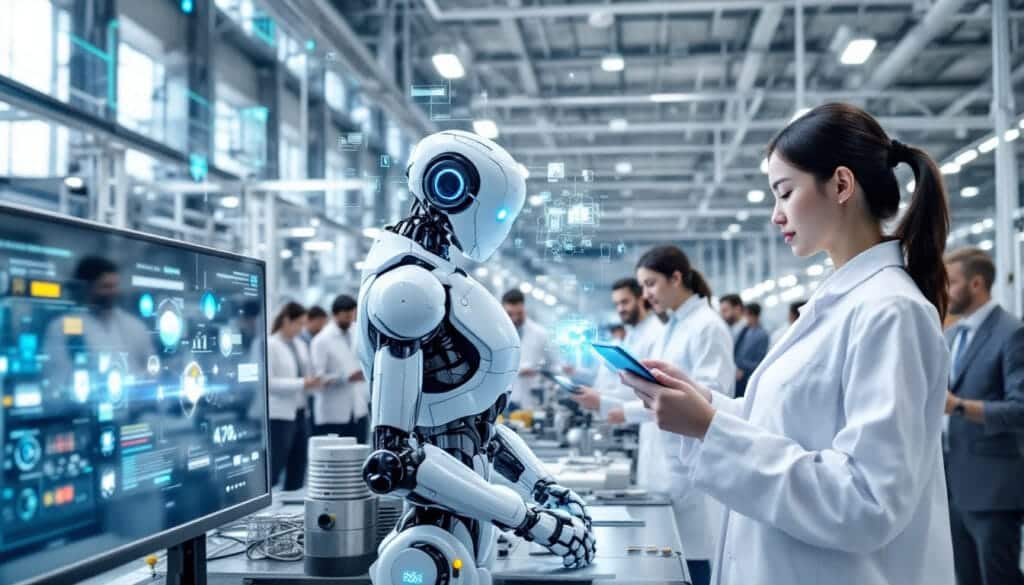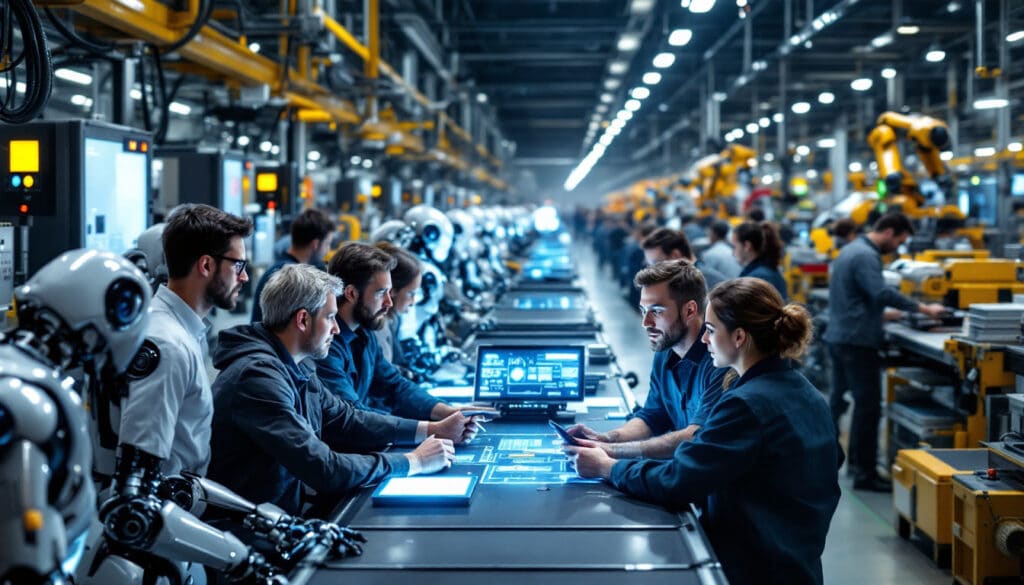Diving into an unprecedented transformation, the manufacturing industry is preparing to embrace a new era in 2025, driven by the undeniable impact of Artificial Intelligence (AI). In this context of Industry 4.0, the integration of AI is revolutionizing production lines, going well beyond simple automation. Both in optimizing predictive maintenance processes and in quality improvement through enhanced defect detection, AI is establishing itself as the cornerstone of a smarter and more efficient production, thereby profoundly transforming the manufacturing landscape.
The 4.0 revolution marks a crucial milestone for the manufacturing industry, where artificial intelligence (AI) plays a transformative role. By 2025, AI is expected to significantly enhance efficiency, accuracy, and productivity. Factory automation will be enriched by predictive systems that can reduce process downtime by 20 to 50%. AI will also integrate into quality control, detecting defects that the human eye might miss, with accuracy increased up to 90%. The optimization of the supply chain through AI will provide more accurate demand forecasts and intelligent inventory management, including the use of autonomous vehicles. These changes promise not only sustainable production but also a redefinition of the roles of workers, where human-machine collaboration will take center stage. Companies also plan to train their employees to integrate these new technologies into their daily practices.

Table des matières
ToggleRevolution 4.0 and the Evolution of Industrial Automation
The era of Revolution 4.0 promises to bring significant transformations in the manufacturing sector, notably through the use of artificial intelligence (AI) for factory automation. By 2025, it is anticipated that AI, in collaboration with advanced sensor systems, will give rise to smart factories capable of operating autonomously. These modern facilities will utilize innovative AI algorithms to monitor production activities in real-time and predict potential anomalies before they become problematic. This will not only pave the way for greater efficiency but also for reduced operational costs and interruptions, allowing companies to maintain a competitive edge in a constantly evolving market.
Companies will need to adapt to this new technological reality by incorporating advanced digital platforms to improve supply chain management and inventory optimization. Players like Gartner predict that a large portion of supply chains worldwide will be powered by integrated platforms, thus facilitating accurate demand forecasts and transparent tracking of goods. The combined use of AI and big data will improve the coordination between demand and supply, thereby eliminating the problem of overstocking or stockouts, promoting agile and responsive logistics.
Redefining Quality and Processes through AI
In the field of product quality, AI plays a major role in revolutionizing traditional quality assurance methods. Automated AI systems are capable of detecting even the smallest imperfections that previously went unnoticed with human inspection methods. Advanced algorithms thus provide enhanced control, leading to a substantial reduction in waste and an improvement in customer satisfaction. By adopting AI for quality control, companies can achieve unparalleled levels of accuracy while realizing significant cost savings. According to some studies, this approach could improve defect detection rates by up to 90%, thereby reducing costs associated with defects and environmental impacts.
Redefining Human Roles in the Factories of Tomorrow
As automation gains momentum, concerns about job loss are intensifying. However, a often-overlooked aspect is how AI redefines and enhances the human role in industry. With AI performing repetitive and time-consuming tasks, workers can focus on more strategic and creative missions. Human skills such as decision-making, innovation, and collaborative work become essential. Furthermore, more organizations are implementing reskilling programs, allowing employees to acquire knowledge in managing and using AI technologies. This not only ensures a smooth transition to Industry 4.0 but also paves the way for the creation of new types of jobs at the convergence of technology and human ingenuity.





